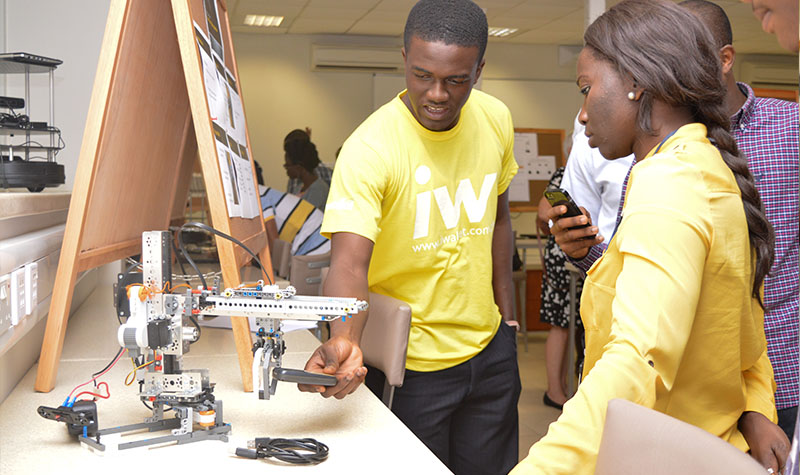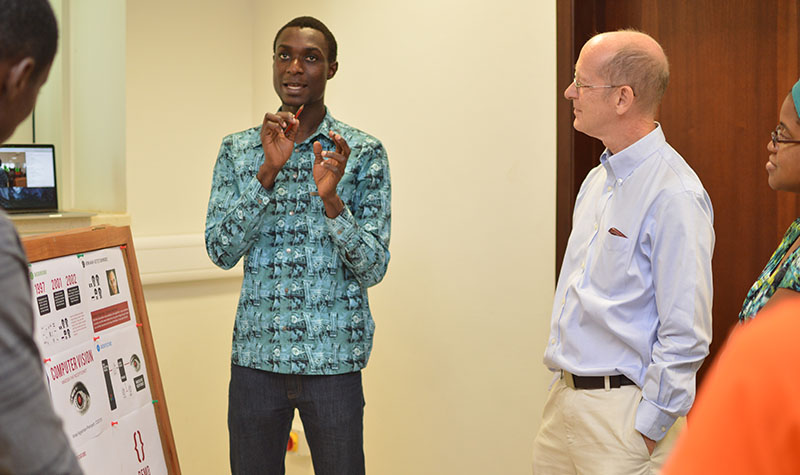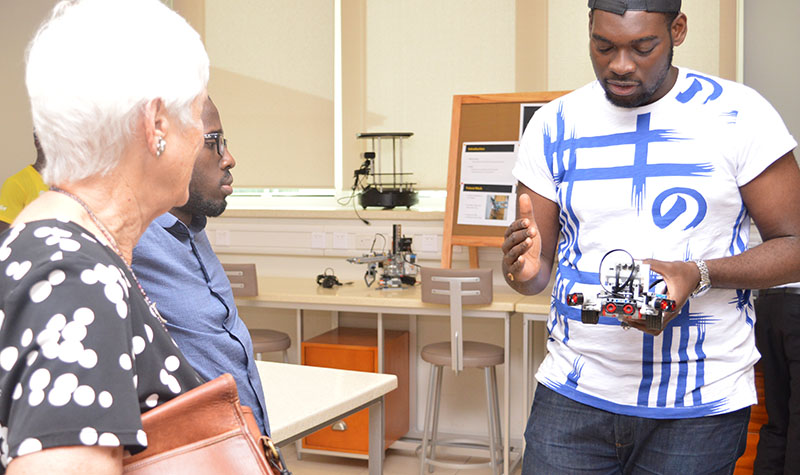 February 19, 2016
February 19, 2016
For many visitors, a robotics lab session is a surreal world. Between tiny robots pacing to and fro, to programs using artificial intelligence to interact with humans, one could easily get lost in wonder. However, most labs in developing countries like Ghana historically have very little use beyond academic exercises; training in an area that has had minimal impact, especially in local industries.
Against the backdrop of an African environment that is yet to fully leverage robotics, Ashesi’s students are picking up skills that they can apply effectively to closing an important technology gap. “The idea is to break the barrier between the world of software and the physical world, and embrace software that responds to the physical world,” said Dr. Ayorkor Korsah, Head of the Computer Science Department, during a recent Robotics class open house session. “So the students might not necessarily go out and make robots, but they have learned a set of valuable skills, which can enhance the kind of solutions that they come up with for the problems around them. So someone one who has worked with sensors on a robot, will be very comfortable with the idea of integrating sensors in the physical world to make a smart door, for example.”

Ashesi’s robotics curriculum focuses on exposing students to exciting and cutting-edge areas, as a basis for getting them to think about what they can do with their degrees. The class covers the foundational principles of robotics and gives opportunities to students to explore a particular aspect of robotics at greater depths. Apart from lectures and labs, students enrolled in the class are required to critically review robotics literature frequently.
As part of the class, students are also required to develop robotics solutions for real-world problems. Israel Prophet Agyeman ‘16, for example, took advantage of the class to work on his growing interest in computer vision. “I want to learn how best we can apply computer vision – the ability of the computer to ‘see’ as a human being – in our daily lives,” he said. “In class, we treated a bit of computer vision, and I used it as an opportunity to create a precursor system called Vanessa, a very low-end Artificial Intelligence. I am expanding this for my final project, to see how computer vision can help reduce road accidents.”

With the recent addition of an Engineering school, Ashesi is expanding its robotics program and will focus on bringing students from different majors and with different skill-sets together to work on projects, an interdisciplinary approach that will mimic the real world of work.
“The broad goal is to help students look at some exciting things they can do with their computer science and engineering degrees,” adds Dr. Korsah. “We want them to see the majors as tools that can enable them to push the state-of-the-art in Africa, and solve really challenging and exciting problems.”

Share this story
